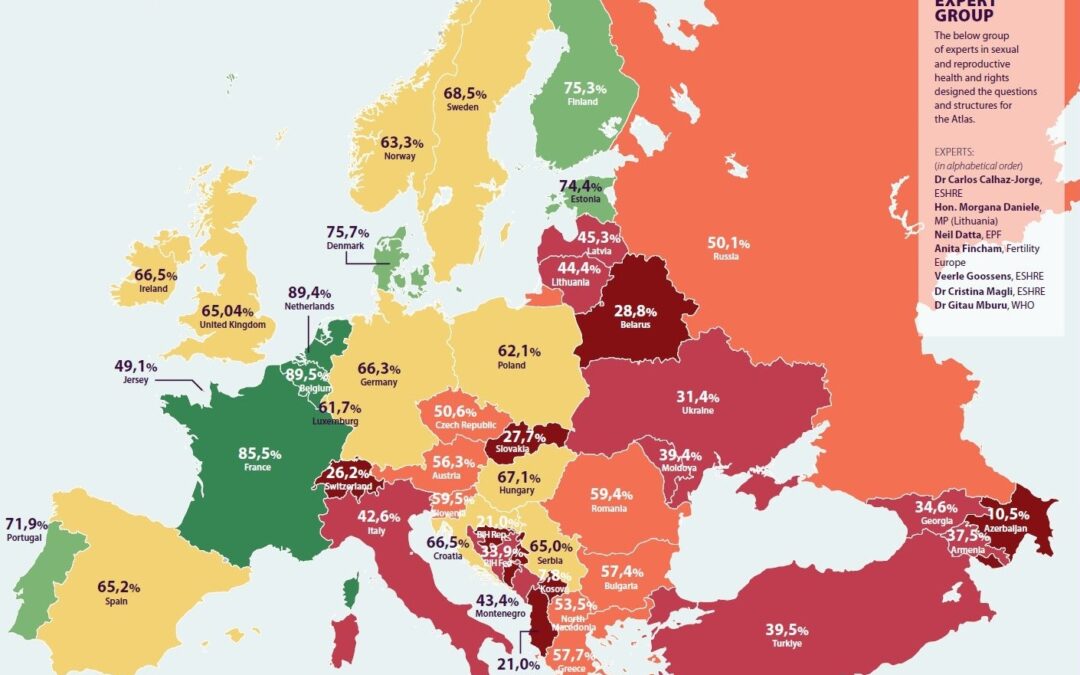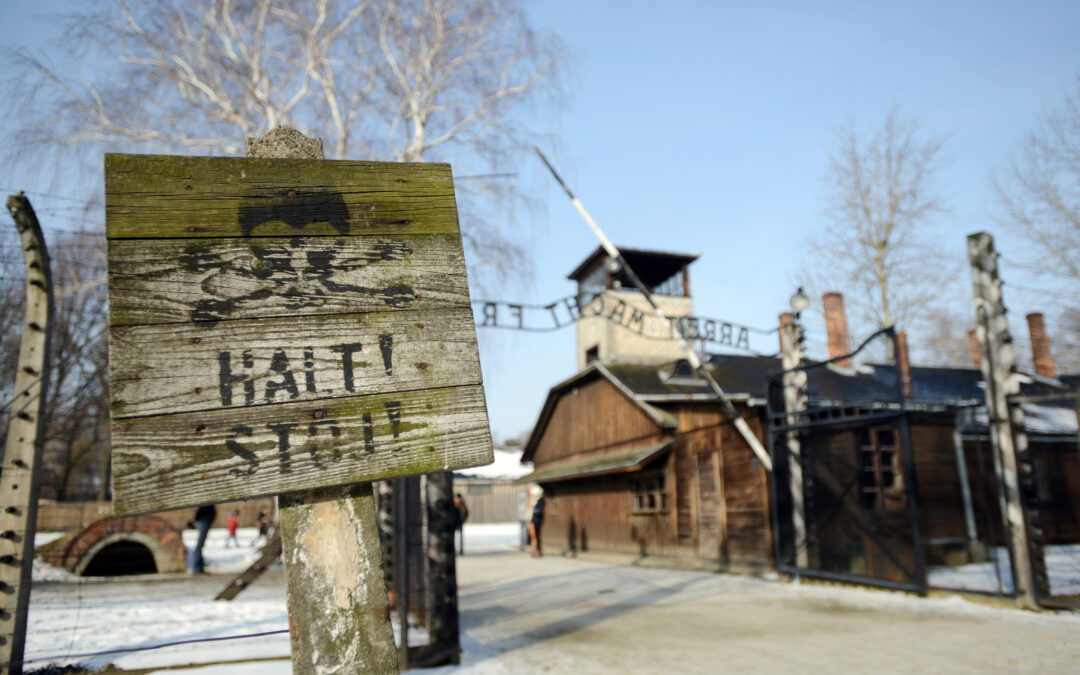Keep our news free from ads and paywalls by making a donation to support our work!

Notes from Poland is run by a small editorial team and is published by an independent, non-profit foundation that is funded through donations from our readers. We cannot do what we do without your support.
Poland has risen 22 places in a ranking of fertility treatment policies in European countries. The dramatic change happened after the new, more liberal government that took office last year restored state funding for in vitro fertilisation (IVF) treatment, which had been cut by its conservative predecessor.
In 2021, the last time the European Atlas of Fertility Treatment Policies – which is prepared by Fertility Europe in cooperation with the European Parliament – was published, Poland ranked 41st with a score of 27%.
That was the joint-third lowest position in the ranking – ahead of only Armenia (26%) and Albania (13%) – and the lowest among all European Union countries (equal with Ireland, which also scored 27%).
However, in the newly released 2024 report – which was presented in the European Parliament last week – Poland’s score has risen to 62.1%. That ranks it 19th in Europe, just above Luxembourg (61.7%) and below Norway (63.3%).
🇵🇱 Nasza polityka wsparcia par starających się o dziecko została dostrzeżona! 👨👩👧 Jeszcze w 2021 roku Polska znajdowała się na 44. miejscu europejskiego rankingu leczenia niepłodności – 3. miejscu od końca!
Dzięki uruchomionemu refundacji w 2024 r. dla procedury in vitro… pic.twitter.com/yPp7WC5pv3— Ministerstwo Zdrowia (@MZ_GOV_PL) December 6, 2024
In 2016, the newly installed national-conservative Law and Justice (PiS) government cut national state funding for IVF. It claimed the treatment was not an effective use of state funds, though as a party with close ties to the Catholic church it also had religious reasons for opposing the procedure.
However, last year, after a new, more liberal ruling coalition replaced PiS, funding for IVF was restored. The bill to do so was signed into law by PiS-aligned President Andrzej Duda despite an appeal against it by the church.
“We have jumped in the ranking, but we have also jumped from the dark Middle Ages to the modern world, to modern medicine,” Michał Radwan from Gameta, a chain of infertility treatment clinics, told broadcaster TVN24.
Poland scored points in the ranking for public funding, strong legislation and the fact that the IVF programme – deemed by Radwan “the best reimbursement programme in Europe and one of the best in the world” – was developed jointly with experts and the public.
However, Fertility Europe also highlighted that, to achieve an even higher score, Poland should provide access to infertility treatment for single women and same-sex couples, introduce a non-anonymous donation system with donor identity revealed to children, and improve fertility education in schools.
The new IVF funding programme entered into force in June this year and has already resulted in over 7,000 pregnancies. In total, more than 20,000 couples have qualified for help.
This includes “couples who were particularly excluded before [due to the lack of state funding], younger women and younger men who do not have a good financial situation at the beginning of their careers”, Rafał Kurzawa, president of the Polish Society for Reproductive Medicine and Embryology, told TVN24.
President Duda has signed a bill restoring funding for IVF, despite an appeal from the head of the church not to.
It is the first time the conservative president was called on to approve legislation after a more liberal government came to power this week https://t.co/uIZhh6EDRa
— Notes from Poland 🇵🇱 (@notesfrompoland) December 16, 2023
Marta Górna from the Nasz Bocian (Our Stork) Association for Infertility Treatment and Adoption Support also praised the new programme as “very accessible, very inclusive, it really can benefit almost anyone who needs IVF treatment”.
In the European Union, 25 million citizens are affected by infertility. In Poland, infertility affects roughly 1.5 million couples, representing around 20% of the population of reproductive age, according to estimates by the Polish Gynaecological Society.
Meanwhile, the number of births in Poland has been falling in recent years. In 2023, it reached the lowest the country has seen since the Second World War. It was also the 11th year in a row in which deaths have exceeded births, during which time the country’s population has fallen by almost one million.
The number of births in Poland last year was the lowest since WWII.
It was the 11th year in a row in which deaths have exceeded births. The country’s population has declined by almost one million over that period.
Read our full report here: https://t.co/UtzEbTitwd pic.twitter.com/JeIu81fjw8
— Notes from Poland 🇵🇱 (@notesfrompoland) February 1, 2024

Notes from Poland is run by a small editorial team and published by an independent, non-profit foundation that is funded through donations from our readers. We cannot do what we do without your support.
Image credits: Fertility Europe

Agata Pyka is a former assistant editor at Notes from Poland. She specialises in Central and Eastern European affairs, cybersecurity, and investigative reporting. She holds a master’s degree in political communication from the University of Amsterdam, and her work has appeared in Euractiv, the Balkan Investigative Reporting Network (BIRN), and The European Correspondent, among others.



















